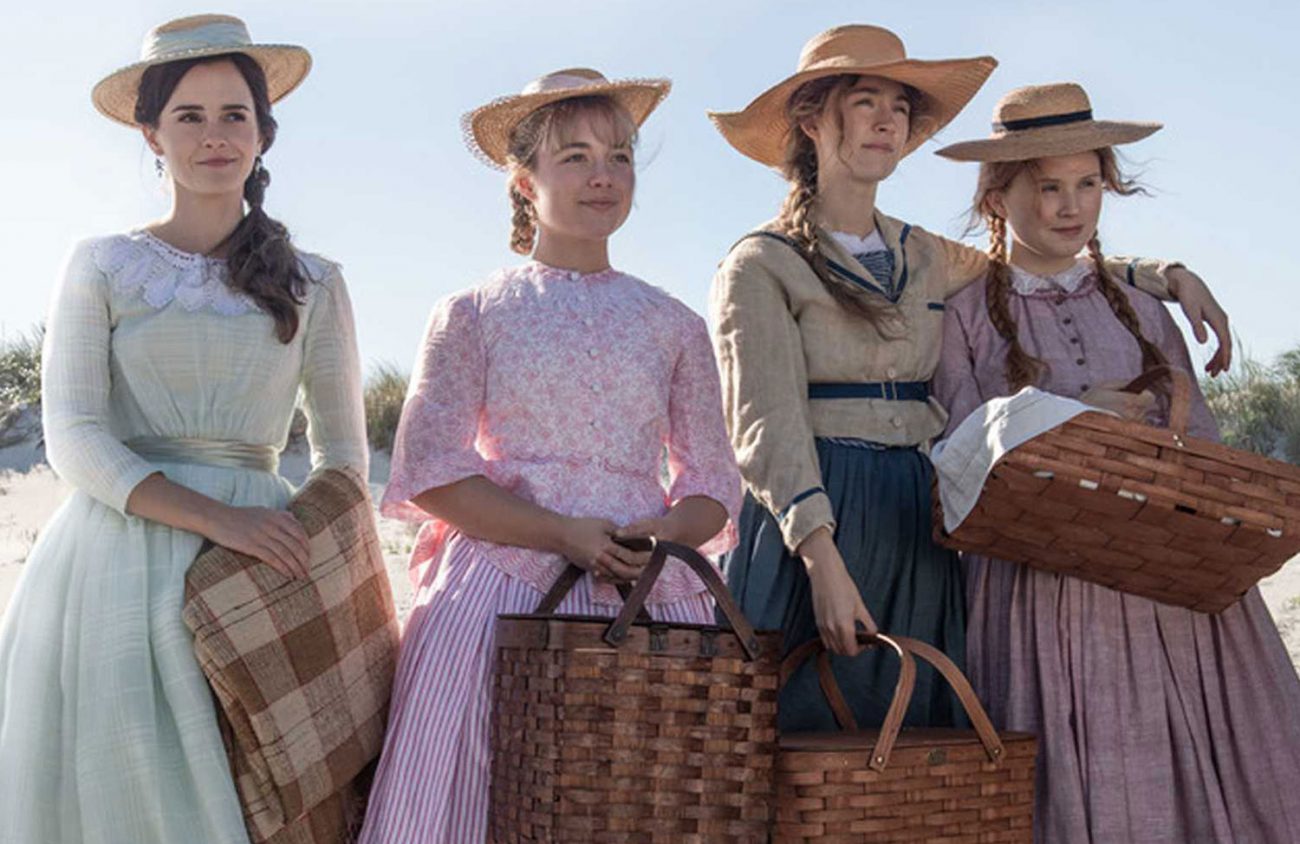Greta Gerwig’s adaptation of Little Women begins and ends with Jo March (Saoirse Ronan) in her editor’s office, trying to convince him to buy her stories. Her editor, Mr. Dashwood (Tracy Letts), is skeptical, reminding her that the stories he buys need to sell.
“If the main character’s a girl, make sure she’s married by the end. Or dead, either way,” Mr. Dashwood says in one of the film’s opening lines.
The line between reality and fiction has always been blurred in Little Women, starting with the novel written by Louisa May Alcott in the late 1860s. It is a semi-autobiographical story, with Alcott depicted fictionally as Jo, the second-oldest sister, a tomboyish writer and the story’s effective protagonist.
As Mr. Dashwood would suggest, Jo — and all of her sisters — are either married or dead by the end of the book. I won’t specify who, but you’ve had 150 years to read it, so don’t complain about spoilers.
A lot happens in between.
Because of this film’s non-linear retelling, the tale goes back and forth between time periods, but the chronological story begins when we meet the March sisters as kids. Meg (Emma Watson), Jo, Beth (Eliza Scanlan, the least-known actor of the A-list group) and Amy (Florence Pugh) are dynamic sisters who live with their mother (Laura Dern), and miss their father, who is fighting in the war.
The actors have a particularly tough job, portraying beloved characters who have been played in hundreds of ways in different adaptations, characters with whom people have personal, deep connections.
This cast is up to the task. Ronan embodies Jo’s chaos, holding herself in the necessarily unaware but intriguing way. She is tough but kind, radiating chemistry with every other person on screen.
Watson plays Meg as kind and family-oriented with a hint of extravagant desire and an accidentally on-and-off American accent. Scanlan is adorable as sweet Beth, the most elusive character, who is arguably the most difficult to play, in a compelling way.
The standout among the sisters in this film is Amy, whose flaws Pugh makes delightful and charming. She and Jo are the most combative of the family, and Amy acts in some particularly wicked ways. The scene when Amy burns Jo’s manuscript, known to many bookworms as one of the biggest nail biters in literary history, is just as suspenseful as a scene from a horror movie.
But Pugh is absolutely stunning in this role that could seem peripheral to Jo. She gallivants across the screen, endearing us all to her.
The March sisters are smart and creative, the kind of people who perform extravagant original plays for their mother, with handmade costumes and hours of rehearsing. They aren’t perfect (save for Beth, perhaps), but they are the kind of people who form a magical inner circle that anyone would be desperate to break into.
If you weren’t sure whether you wanted to be friends with the March sisters, you only have to watch Laurie (Timothée Chalamet), the sisters’ best friend and neighbor, watching all of the girls. When he first enters their home, we know: He thinks these people are the best, and anyone smart would think so, too.
Laurie is particularly enamored with Jo, who, fancying herself independent forever, turns him down. This is an especially heart-wrenching moment considering Chalamet’s deserved status as America’s heartthrob. When he first appeared on screen, my sister sighed, “I’m going to be heartbroken for this whole movie!”
But Jo, despite collective audience heartbreak, was right not to marry Laurie. She is insistent throughout the story that she wants to stay single forever, holed up in her writing spaces to scribble frantically.
Alcott was pressured to find another match for Jo. Alcott herself never married. Her personal journals and letters make it clear she didn’t want Jo to be married either, but she felt that she had to alter her fictional persona in order to sell the book.
In a crucial, unexpectedly meta ending, Gerwig asks us to question whether Jo’s eventual marriage was authentic to Alcott’s desire for her main character, and in doing so, shows how much she respects the author and the story.
Perhaps now, 150 years after Little Women was originally published, a marriage plot isn’t mandatory to sell a story. In this way, Gerwig’s film is about the joy of writing and creating as much as it is about romantic love, if not more.
So even after dozens of interpretations of the March sisters, on film and television and stage, thank goodness Gerwig decided to do it again.
The movie invokes the coziest, most beautiful parts of childhood, real or imagined. Gerwig distills the best parts of family and injects them straight into the veins of everyone watching. If you’re fighting with your family, go see this together. You’ll all be hugging when you leave the theater.
